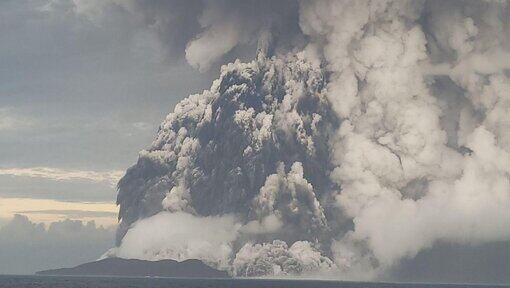

Findings from a review conducted by University of Melbourne researchers shows multiple disasters can have complex impacts on physical health, mental health and well-being which go beyond what has been observed after single disasters.
The study reviewed all empirical research that could be identified on direct and indirect public health effects associated with experiencing multiple disasters and included 150 articles published globally.
Published today in the Lancet Public Health, Dr Claire Leppold and fellow University of Melbourne co-authors Professor Lisa Gibbs, Dr Karen Block, Dr Lennart Reifels and Ms Phoebe Quinn detail the ways multiple disaster exposures can impact physical health, mental health, wellbeing and resilience. It also details indirect influences on health such as impacts on healthcare facilities, changes in risk perception and evacuation behaviours, and government responses to multiple disasters.
Most public health research in this field has been based on the premise of a single disaster occurring, but there is a growing number of cases where communities experience more than one disaster. For example, some communities across Victoria, Australia, experienced the 2019-20 Black Summer Bushfires, the COVID-19 pandemic from early 2020 and then major flooding events in 2021. International examples of multiple disaster exposures abound; most recently, the Hunga Tonga volcanic eruption which then led to a tsunami. Tonga now faces impacts from two types of disasters at the same time.
“To our knowledge, this is the first review of the public health implications of multiple disasters. This is an important topic given the projected increases in frequency and severity of disasters due to climate change, and the fact that many people ad communities are already experiencing multiple disasters,” Dr Claire Leppold, the lead author of the study, said.
While some researchers have previously speculated that exposure to one disaster could have a positive effect of preparing people mentally for future disasters, Dr Leppold said the review could not find any consistent evidence to support this.
“Our review finds evidence that risks of poor mental health and physical health outcomes tend to increase with each disaster experienced, highlighting a cumulative effect. These findings underscore the importance of developing further support for people and communities affected by multiple disasters, and for policy responses to reduce the likelihood of climate hazards leading to disasters.”
Dr Leppold notes the complex nature of health and wellbeing impacts. “This review also identified, for example, mixed evidence on how experiencing multiple disasters can affect risk perception and evacuation decisions, which can affect public health in terms of non-evacuation or delayed evacuation. There is a need for more research in this area.”
Co-author Dr Lennart Reifels said: “Research in the burgeoning area of multiple disaster exposures will be vital to informing the ways in which we can best assist affected communities and prepare public health systems to avert the future health risks and impacts of multiple disasters. This seminal review makes an important contribution by summarising the current state of the evidence on the public health consequences of multiple disaster exposures with a view to fostering future research and inform effective responses.”







































